Phonics recognition Normal Letter Sounds Worksheets for Ages 3-6
5 filtered results
-
From - To
Boost your child's early reading skills with our Phonics Recognition Normal Letter Sounds Worksheets for ages 3-6! Each worksheet provides engaging and interactive activities designed to help young learners recognize and pronounce common letter sounds. Our expertly crafted worksheets feature colorful images, playful exercises, and original themes to capture your child's interest while developing fundamental phonics skills. Perfect for both classroom and home use, these worksheets lay the foundation for successful reading and language comprehension. Equip your child with the essential tools they need to master the alphabet and confidently navigate the world of words.
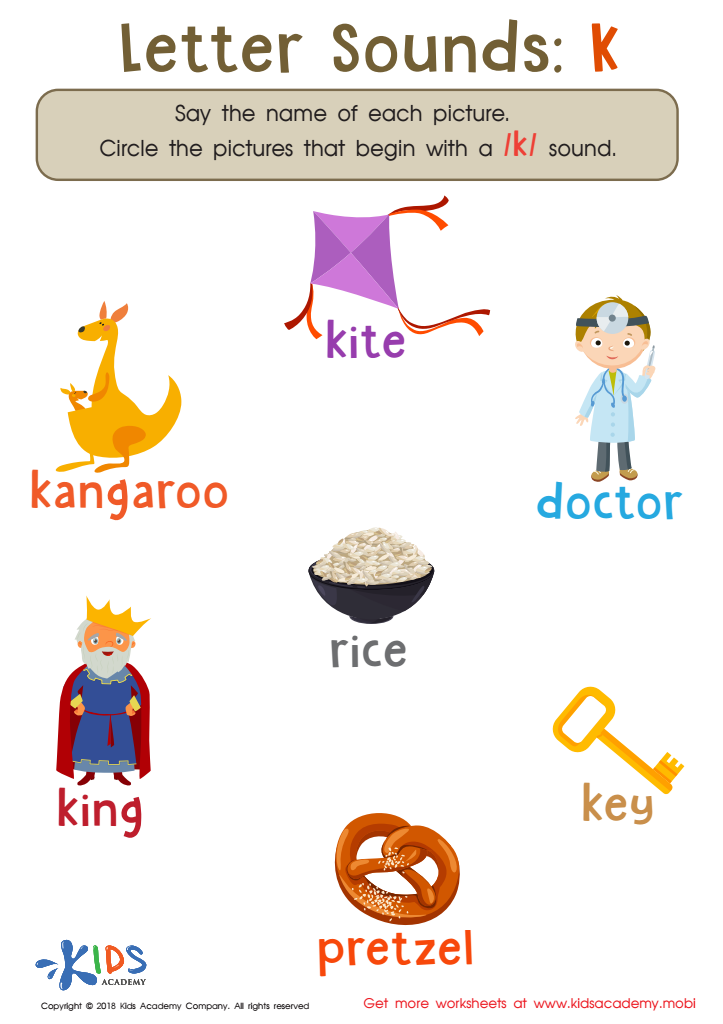

Letter K Sounds Worksheet
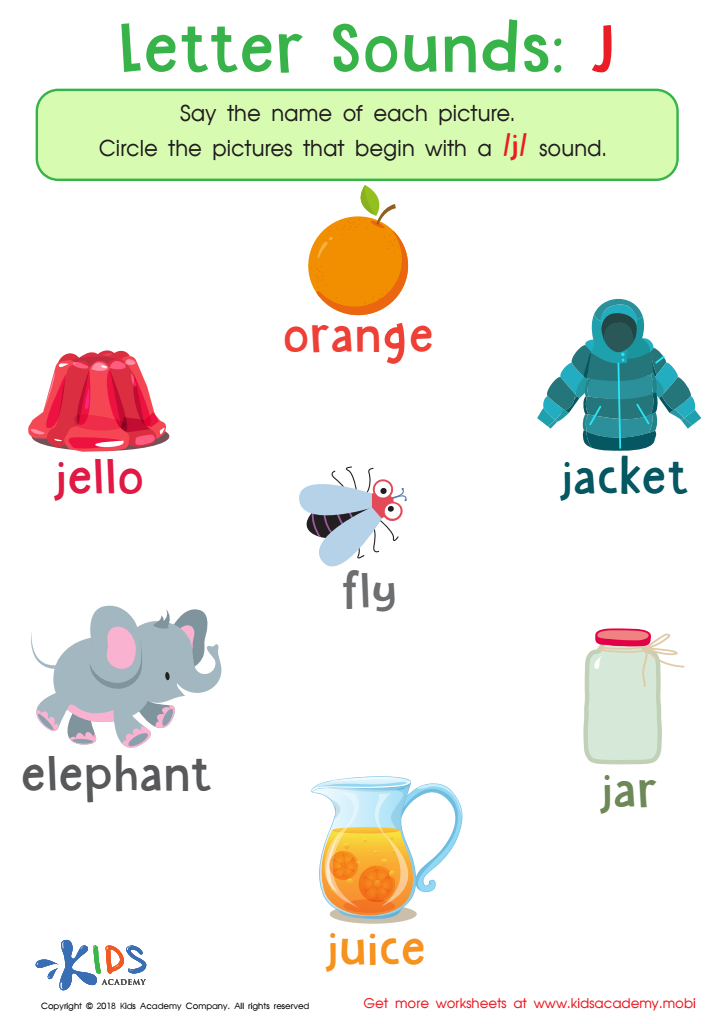

Letter Sounds: J Printable Worksheet
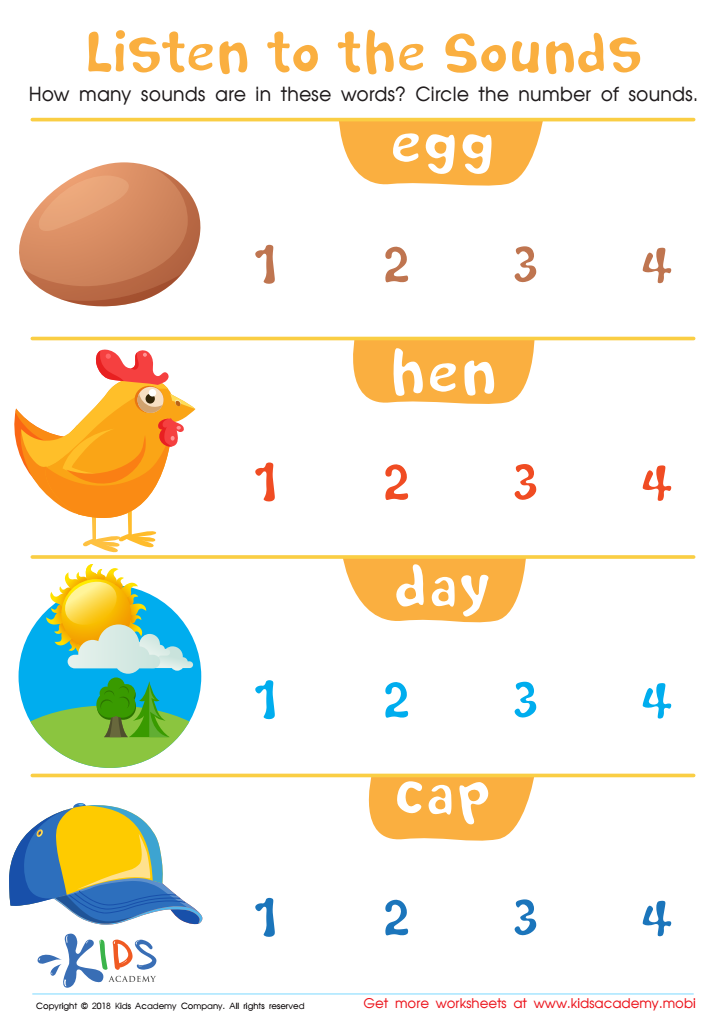

Listen to the Sounds Worksheet
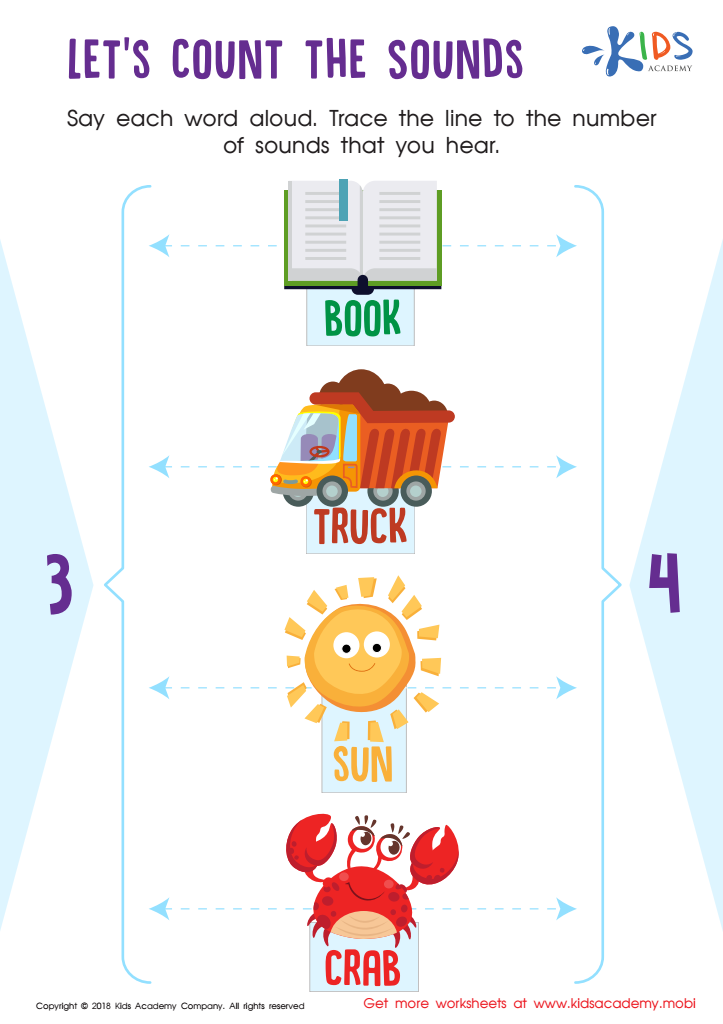

Let's Count the Sounds Worksheet
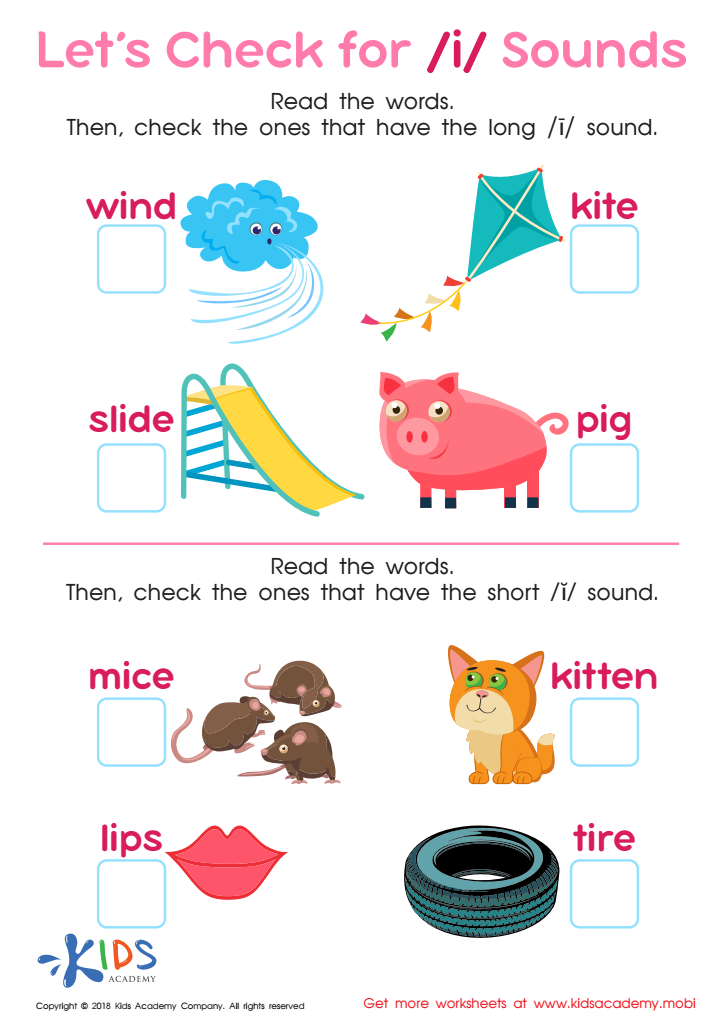

Let's Check for «i» Sounds Worksheet
Phonics recognition of normal letter sounds is crucial for children aged 3-6 as it lays the foundation for their future reading and writing skills. During this formative period, young minds are particularly receptive to language learning. Understanding the relationship between letters and sounds, known as phonemic awareness, is the cornerstone of reading. It aids in decoding unfamiliar words, fostering independent reading skills.
For parents and teachers, emphasizing phonics can significantly enhance a child’s literacy development. When children recognize letter sounds, they can blend them to form words, making reading a more intuitive and less frustrating process. Early mastery of phonics helps children to increase their vocabulary, comprehension, and ability to express thoughts and ideas effectively.
Moreover, children who have strong phonics skills are more likely to enjoy reading, fostering a lifelong love for learning. This early proficiency can boost their confidence, setting a positive trajectory for their academic journey. Conversely, children who struggle with phonics can often fall behind in reading, leading to wider gaps in educational achievement.
Investing time in phonics education is essential for later success in school subjects that rely on reading comprehension, such as science, math, and social studies. Thus, parents and teachers should prioritize phonics to ensure their children have the best possible start in their education.

 Assign to My Students
Assign to My Students



















